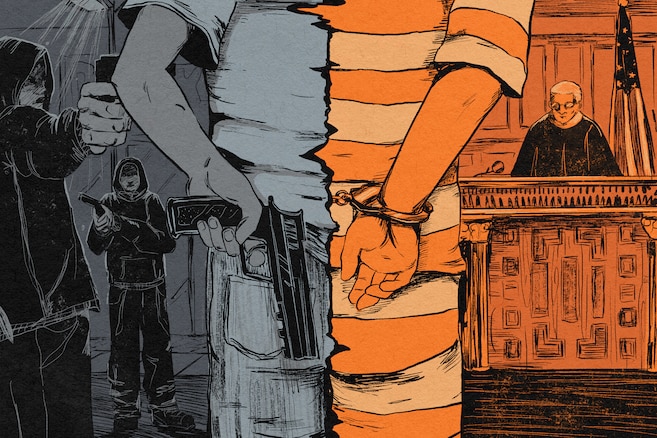In less than two years, Curtis Hunt was shot a total of 12 times.
The bullets tore through his chest and left lung. They damaged his large and small intestines. And they caused his heart to swell.
But Baltimore Police alleged that he had a gun on him both times when he was shot. And because he’s not legally allowed to have one, Hunt, 25, of Baltimore, was then prosecuted — twice.
“He already lost so much time being shot and being hurt and being injured, laying there, having to think about everything,” said his girlfriend, Hailey Scarlett, 25. “Now, he’s got to sit and look at four walls.” “He’s being punished for him being shot,” she added. “It’s not fair.”
His situation is complex. But it helps illustrate how people can be both victims and defendants in Baltimore Circuit Court — even in the same case.



How about disallowing evidence gathered about the victim of the crime from being used to prosecute them? Like we disallow evidence gathered without a proper warrant, theoretically.
The issue with that is a criminal can commit a crime, then have an accomplice commit a crime against them. Now when the police investigate the latter and find out about the former they can’t use the evidence, so convicting the criminal of the, presumably, more serious crime becomes impossible. Create a ‘crime loop’ and no one can be convicted.
The cops would prosecute the crime they gave the external evidence for. In this case the shooting of the victim, because that came to their attention as a crime. Since they wouldn’t have interacted with the victim except that he got shot, the fact he had a gun on him can’t be used as evidence against him. Just like if they search your car for guns, they can’t seize your bank statements from the glovebox and use them as evidence for financial crimes.